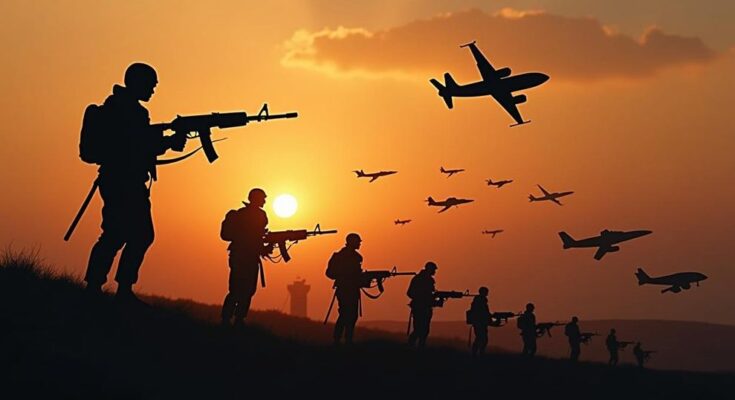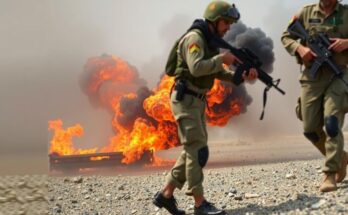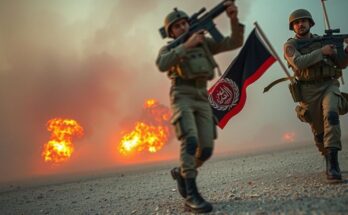The Israeli military has conducted airstrikes targeting senior Hezbollah officials, resulting in the death of Nabil Kaouk, marking the seventh high-ranking figure killed in just over a week. In parallel, Israel launched strikes against Houthi positions in Yemen following a missile attack on Israel. These actions contribute to wider regional tensions and significant humanitarian implications for civilians affected by the ongoing violence.
The Israeli military has reported the elimination of another senior Hezbollah figure, Nabil Kaouk, the deputy head of Hezbollah’s Central Council, during an airstrike that occurred on Saturday. This incident raises the count to seven senior Hezbollah officials who have been killed by Israeli airstrikes in recent days amid a broader offensive following the death of Hassan Nasrallah, the group’s leader. Hezbollah confirmed Kaouk’s death, acknowledging considerable losses within its ranks, including founding members who had long evaded harm. Meanwhile, Israeli forces have conducted additional targeted strikes in Beirut, although specific details regarding these operations have not been disclosed. In a related escalation, Israeli military action also targeted the Houthi movement in Yemen, striking power plants and port facilities in Hodeida in retaliation for a recent ballistic missile attack against Israel. The Houthis claimed to have prepared for strikes on their positions and stated that their operations against Israeli and shipping interests would persist despite the assaults. White House officials commented on the ramifications of the Israeli strikes, with National Security Spokesperson John Kirby noting that Hezbollah’s command structure had suffered significant damage but warned that the group would likely attempt to rebuild. Kirby indicated that, while the elimination of key figures, including Nasrallah himself, was a step towards enhancing safety, a gap in leadership poses challenges ahead for the militant organization. Additionally, the conflict has resulted in substantial civilian displacement in Lebanon, with estimates suggesting that around 250,000 people are in shelters, significantly exacerbating the humanitarian crisis. As Hezbollah iterates its commitment to the Axis of Resistance alongside Hamas, it remains engaged in retaliatory attacks against northern Israel, while Israel continues its airstrike campaigns aimed at weakening Hezbollah’s operational capabilities. The ongoing conflict, triggered by tensions that escalated following Hamas’ recent assaults from Gaza, threatens to engulf the region in a more extensive warfare, raising concerns over the humanitarian impact on civilians caught in the crossfire.
These developments come amidst escalating hostilities primarily between Israel and Hezbollah, a Lebanese militant group backed by Iran. Following Hamas’s recent attack on Israel on October 7, tensions surged, prompting Hezbollah to retaliate by launching rockets into northern Israel. Israel’s response has involved a series of strategic airstrikes aimed at dismantling Hezbollah’s leadership and operational capacity. The intersection of these conflicts indicates a broader regional struggle, where various factions, supported by different international allies, vie for dominance. The ramifications of the airstrikes extend beyond military engagements, significantly impacting the civilian population and intensifying the ongoing humanitarian crises in the affected areas.
In summary, the latest Israeli airstrikes have targeted significant leadership within Hezbollah, resulting in substantial casualties and a crisis for the organization. Concurrently, Israel’s military actions against Houthi targets in Yemen signify a multifaceted approach to regional threats. The deteriorating situation has led to widespread displacement and humanitarian concerns, triggering calls for a temporary cease-fire as world leaders navigate the complexities of this escalating conflict. The interlinked nature of the engagements raises significant implications for both the regional balance of power and civilian safety in Lebanon and beyond.
Original Source: www.pbs.org




